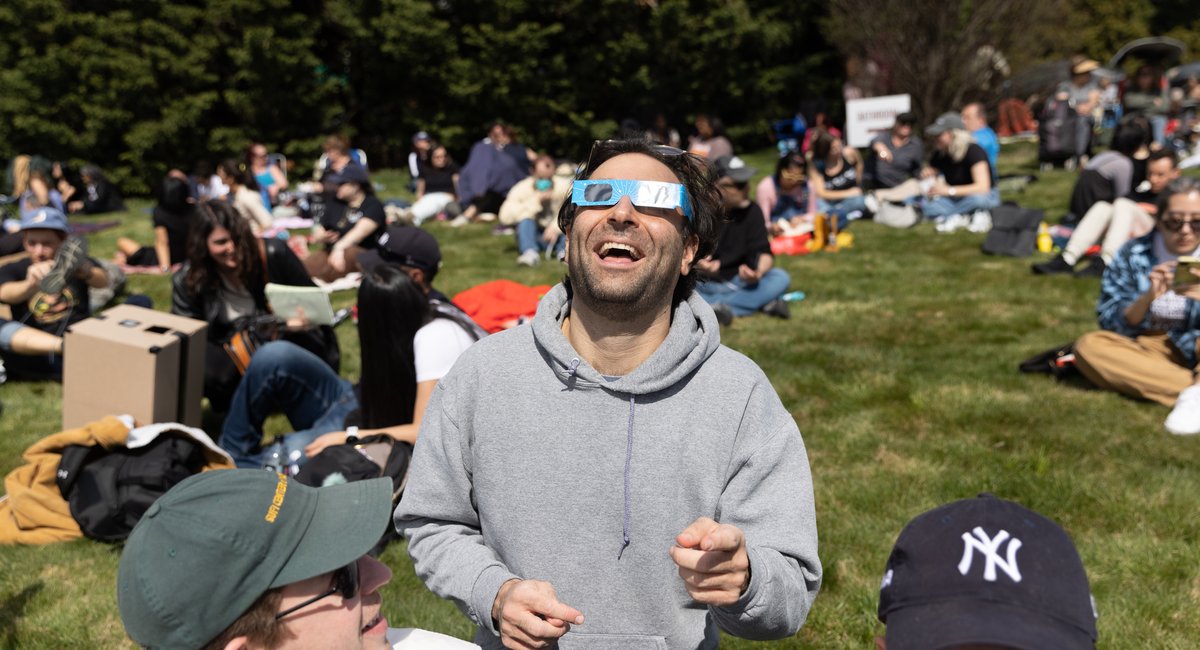In the build-up to Monday’s eclipse, many residents of the New York region planned out how and where they would enjoy the solar event — including seeking out special glasses.
But if you’re worried that amid all the excitement you might have glimpsed the sun without the proper protection — perhaps because you couldn’t resist looking up, or the eyewear you bought isn’t actually certified as safe for an eclipse — vision experts have some advice about how to tell whether your eyes sustained any damage, and what to do next.
Even a few seconds of exposure to the sun without the proper protection can burn the retina, a layer of tissue at the back of the eye that is sensitive to light, Nicole Putnam, an associate professor of biological and vision sciences at the SUNY College of Optometry, said in a safety video posted ahead of the event.
And it’s possible for that damage to go unnoticed for hours or days afterward, she added. This type of damage is known as solar retinopathy.
Temporary or permanent damage to your eyes from an eclipse is unlikely to be painful, according to an the American Academy of Ophthalmology. The Cleveland Clinic offers similar guidance, but also notes you could experience some delayed soreness or discomfort.
So how can you tell if something is off?
Typically, you would notice visual symptoms within four to six hours — although in some cases, they might not show up until 12 hours later, the American Academy of Ophthalmology said.
The signs to look for include a headache, blurry or distorted vision, a blind spot in your central vision in one or both eyes, increased sensitivity to light or changes in the way you see color, according to the academy.
If you do experience any of these symptoms, an ophthalmologist will be able to use imaging tests to see any irregularities on the retina and determine the extent of the damage, according to the Cleveland Clinic.
While some damage to the retina can be permanent, it may also heal on its own. In mild cases vision can return to normal within one to six months, the Cleveland Clinic said.
Not all visual changes that occur immediately after an eclipse are signs of lasting damage, said Dr. Sherry Bass, a distinguished professor at the SUNY College of Optometry. Some people viewing the eclipse from New York City may see the lingering image of a crescent, for instance, or just some brightness, she said.
“You can’t judge it within the first few minutes,” Bass said. “But certainly hours later, days later, if you notice that things are blurry, then you may have damaged your retina.”
Bass said people are more likely to have damaged their retinas if they looked at the sun for a prolonged period — a few minutes — or looked up repeatedly without protection.
This story has been updated with additional comment from SUNY professor Dr. Sherry Bass.





